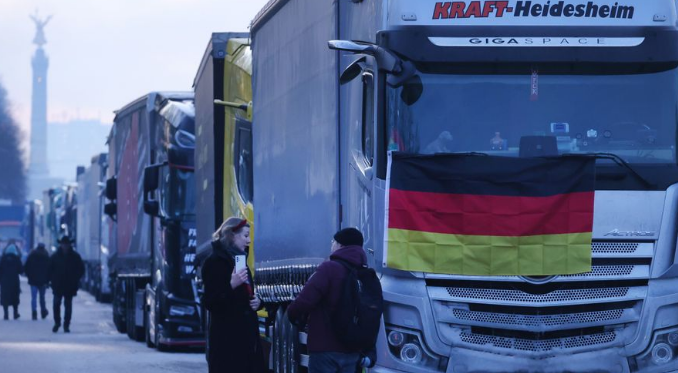
Germany fully bought into the green energy transition, but its economy is now showing serious signs of weakness as a prolonged energy crisis runs its course.
The country is aiming to have its energy supply and demand reach “net-zero” emissions by 2050, relying on sources like wind, solar and hydrogen fuels after former Prime Minister Angela Merkel decided in 2011 to eventually shutter the country’s nuclear power plant fleet. Despite the German government’s regulatory and spending blitz to usher in the green transition, the country is not on track to meet its climate goals, but its decision to rely on intermittent green energy generation has contributed to an ongoing energy crisis that is crippling its economy.
“Hollowing out the economy is not benefiting the German people, nor is it helping climate change,” Diana Furtchtgott-Roth, Director of the Center for Energy, Climate and Environment at the Heritage Foundation, told the Daily Caller News Foundation.
{snip}
Germany ultimately closed the last of its nuclear power plants in April 2023. Several months later, the German government announced that it would activate coal-fired power plants to ensure adequate supply through this winter.
The signs of Germany’s economic withering are numerous, perhaps most visible in the fact that it shrank in 2023 after growing by less than 2% in 2022, according to Euronews. The country is facing the high borrowing costs and inflationary pressures that are dogging many of the West’s economies, but sticky energy inflation remains the key factor in the country’s economic malaise, both for consumers and corporations, according to Reuters.
In the third quarter of 2023, the German electricity sector generated 20% less power than it did in the same period in 2022, according to the GMK Center. On the demand side, Germany’s 2023 energy consumption was about 8% lower than 2022’s levels, and about 25% lower than energy consumption in 1990, according to Clean Energy Wire.
The country’s consumer price index for electricity is nearly 50% higher in December 2023 than it was in January 2021, according to data from Eurostat. Executives of industrial companies are warning that high energy costs are making their continued presence in Germany potentially untenable, while many firms are beginning to move their operations out of Germany, according to Politico.
Germany’s November 2023 manufacturing Purchasing Managers’ Index (PMI), which is “a gauge of overall business conditions based on measures of new orders, output, employment, supplier delivery times and stocks of purchases,” indicate that executives across the entire sector are decidedly pessimistic about their future prospects and the vitality of the sector, according to S&P Global.
{snip}
Germany’s manufacturers are not the only ones feeling the pinch. German farmers recently engaged in a weeklong wave of protest across the country, voicing their anger about the government’s proposal to plug a massive budget gap by eliminating subsidies that allow them to stay in business.
The budget gap especially threatens climate-related initiatives, many of which still require government subsidies to have a chance at succeeding even after the government has already spent hundreds of billions of euros on the green agenda, according to The New York Times.
Meanwhile, the country’s residential real estate prices have fallen precipitously over the past year or so, according to Reuters. The third quarter of 2023 saw residential real estate prices dropped by 10% year over year, a development which Reuters describes as a “grim sign” for the German economy.
While Germany’s energy crisis was many years in the making, Russia’s ongoing war with Ukraine kicked it into overdrive. Before the war started, Germany had become reliant on cheap Russian natural gas, even amid warnings — including one from former U.S. President Donald Trump — that depending on Russian exports would afford Russian President Vladimir Putin significant geopolitical leverage over Europe.
The conflict is still raging, and it remains unclear when it will end or what the terms of concluding the war will look like. One such sticking point is whether or not Russia and Ukraine will be able to renegotiate a natural gas transit deal to replace the current agreement, which expires in 2024, according to Bloomberg News.
The current Russia-Ukraine transit agreement allows for Russian gas to flow through Ukraine and into other European countries in exchange for Russian fee payments to Ukraine, according to Bloomberg.
{snip}
The meager economic outlook and energy crisis is also shaking up German politics. The Alternative for Germany (AfD), the country’s leading right-wing populist party, has seen its popularity more than double since the Russian invasion commenced, according to polling data aggregated by Politico. About 80% of the German population is unsatisfied with the performance of the current coalition, and more than half of the country wants elections to occur before 2025, their currently scheduled date, according to Bloomberg News.
The German Federal Ministry for Economic Affairs and Climate Action did not respond immediately to a request for comment.
* Original Article:
https://dailycaller.com/2024/01/21/germany-green-transition-economy-crumbling/